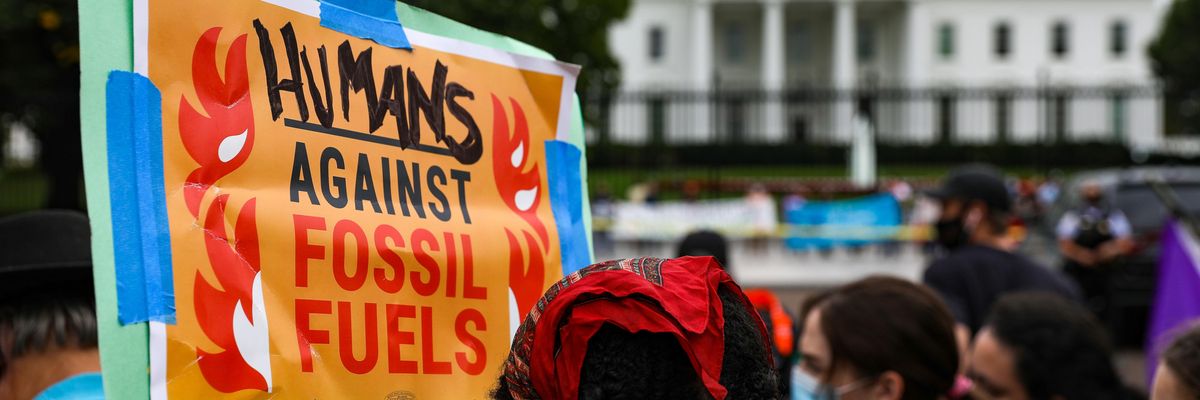If we come together and resolve to do better for each other and the planet, we could find a better path. It would be easier if the gas, oil and coal industries and their supporters would resolve to clean up their act, but the COP28 climate conference in the United Arab Emirates at the end of 2023 showed they’ve only resolved to do as little as possible while raking in massive profits and fuelling not only a climate crisis but an affordability one as well.
Many are trying to fool the public with disingenuous propaganda about carbon capture and commitments to reducing emissions — but only from extraction and production and not the real dangerous emissions from burning the fuels as intended. A cap on oil and gas industry emissions, as Canada’s government has promised, is important, but it’s just a small step. We need to leave fossil fuels in the ground!
The evidence for runaway climate change and its catastrophic consequences is indisputable — and plain to see for anyone paying attention to the rapidly increasing extreme weather events, flooding, droughts, heat domes and more. The evidence for the incredible benefits of shifting from burning polluting fuels to cleaner energy sources such as wind, solar and geothermal is also clear.
Who doesn’t want cleaner air and water, better opportunities, more equality and greater societal stability?
The most obvious is that it will help stabilize the climate and prevent even greater acceleration of costly consequences, from rising health care costs to infrastructure and agriculture damage. But conserving energy and using cleaner energy sources will also create more and better employment, increase economic opportunities and avoid millions of preventable deaths and illnesses, as well as slowing a growing crisis of migrants leaving increasingly inhospitable parts of the planet. If done right, it can even lead to great equality.
Who doesn’t want cleaner air and water, better opportunities, more equality and greater societal stability? Apparently, fossil fuel executives and their supporters, who value money and power above all else, including a survivable climate!
We need to get serious. We can’t keep living in denial. Human-caused climate disruption is the greatest challenge humanity has ever faced. But it’s not a challenge without solutions. We’ve all seen how rapidly technology can advance when we put our minds to it. Just look at the phenomenal change in computing power. Most of us now carry computers in our pockets or purses that are more powerful than the massive systems that first put people on the moon!
Human-caused climate disruption is the greatest challenge humanity has ever faced. But it’s not a challenge without solutions.
We see similar advances in energy and energy storage technologies. Power from wind and solar is now less expensive than power from coal, gas and oil, even with storage. It’s also more efficient — and far less polluting. And it’s not subject to volatile markets and industry profiteering.
But what can we do in our own lives? How can we push back against an industry that has such as hold on global economies and such great influence over politicians?
First, we need to be informed. And despite — or perhaps because of — the plethora of information out there, that can be a challenge. But if we employ critical thinking skills and learn to evaluate sources to know which are credible and which aren’t, we can put the pieces together.
Most of all, we need to come together to make our voices heard.
We also have to free ourselves from the consumer prison we’ve created. Working long hours and going into debt so we can have more stuff isn’t the way to happiness. We especially have to advocate for better transportation options. The idea of the private automobile — using machines made of tonnes of metal, plastic and other materials to move less than a hundred kilograms of people, especially burning massive amounts of fossil fuels to do so — doesn’t make sense, other than as a way to increase oil and auto industry profits.
Most of all, we need to come together to make our voices heard. Whether it’s joining protests, writing letters and signing petitions, talking to friends and family, letting politicians know they’ll only earn our support when they take the climate crisis seriously, or all or some of the above, we can make a difference. Above all, let’s resolve to be kind to each other!
Here’s to a happier new year!

